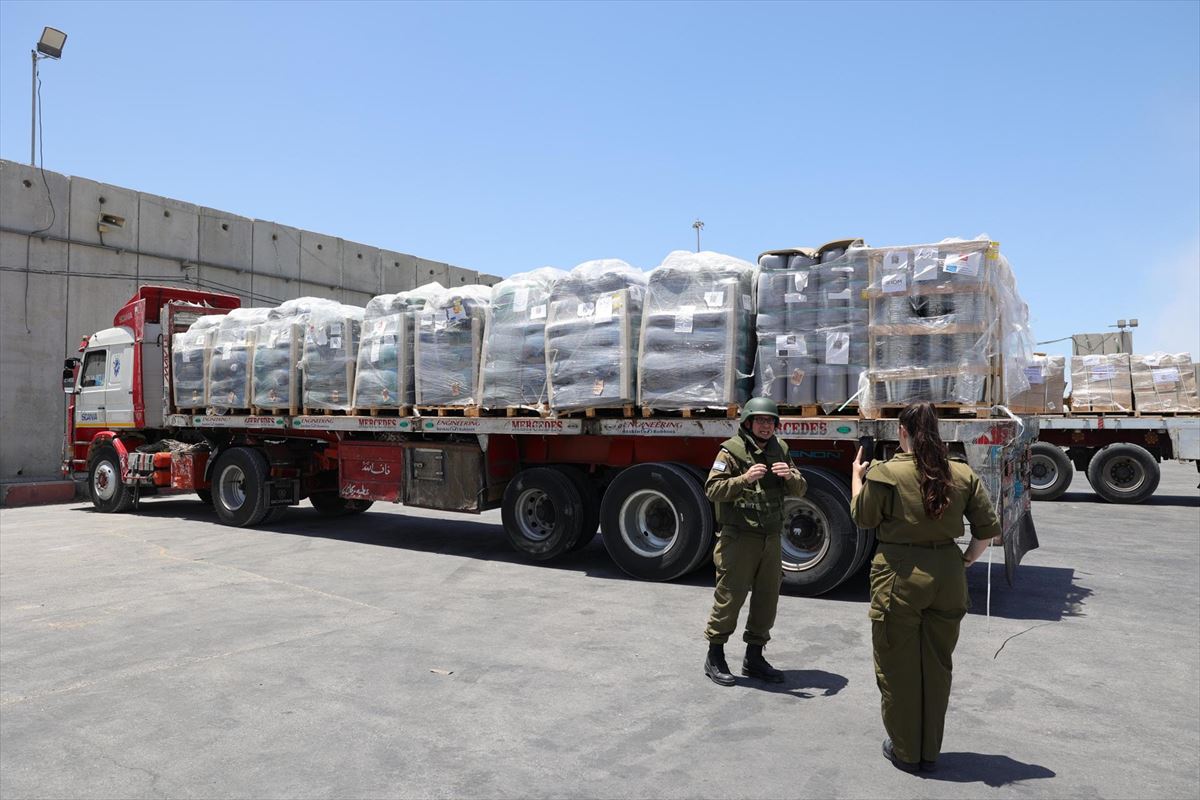Israel has encouraged evacuations, appealing to supposed safe areas in the vicinity of Rafah which, however, have been the target of several attacks in the last week. Dozens of people have died in camps set up for displaced people after several military attacks.
More of one million of people have fled from the Gazan city of Rafah, in the south of the Gaza Strip, since the Israeli Army launched its military offensive on this area at the beginning of the month, according to Juliette Touma, spokesperson for the United Nations Agency for Palestinian Refugees in the Middle East. (UNRWA).
The agency reported this Thursday more than 32,000 new displaced people in just two days.
Israel has encouraged evacuations, appealing to some supposed safe zones in the vicinity of Rafah which, however, have been subject in this last week of various attacks. Dozens of people have died in camps set up for displaced people after several military attacks. The Israeli Army confirmed today, for the first time, that it is operating in the center of Rafah,
The Israel Defense Forces (IDF) began the May 6th this large-scale assault in Rafah, despite warnings from the UN and humanitarian organizations working on the ground. Before this assault, 1.4 million people were gathered in Rafah, most of them displaced from other areas of the Strip.
Since Israel began its operation in Rafah, the border crossing into Egypt, through which much of the humanitarian aid crossed to the south of the enclave, remains closed, while only aid passes through the Kerem Shalom crossing, also in the south. sporadically. Additionally, Israeli forces have continued their advances in what is known as the Philadelphia Corridor, the strip of land that runs along Gaza’s southern border.

The situation, together with the proximity of the fighting and the shortage of supplies, has forced hospitals and clinics to close, and only part of the Emirati Maternity Hospital in the Tal al Sultan neighborhood remains operational in the south, according to the World Health Organization. Health (WHO).
The Government of Benjamin Netanyahu has made it clear that it will continue with its operations in this area, ignoring provisional measures issued by the International Court of Justice (ICJ) that demand the “immediate” cessation of the offensive in Rafah.
Gaza health authorities reported today that Israeli bombings in the last 24 hours have killed 60 people and injured 280. Since October 7, Israel has killed 36,284 people, most of them children and women, and 82,057 have been injured. It is also estimated that the bodies of some 10,000 missing people remain buried under the rubble.
Israel withdraws from Jabalia, after leaving it devastated
The Israeli Army withdrew today from the Jabalia area, in the north of the Gaza Strip, after concluding its military operation in the town, which has been practically devastated.
Israeli forces returned to operating in that refugee camp, one of Hamas’ strongholds in Gaza, at the beginning of May, after warning that the Islamist group’s militants were regrouping in the area.
“The children are hungry”
World Health Organization (WHO) reported this Friday on the latest assessment on the nutritional situation in Gaza shows that children are simply suffering from hunger and the main reason is that humanitarian aid is not arriving to civilians in the Palestinian territory.
The evaluation has confirmed that of the eight food groups that constitute the basis of a healthy diet, 95% of children between six and 23 months consume “two groups or less” and, even worse, 85% had not eaten anything at all for at least one of the previous three daysrevealed WHO spokesperson Margaret Harris.
The United Nations Humanitarian Aid Coordination Office (OCHA) has confirmed that “very little” aid is moving into Gaza and that the amounts fall far short of what is desperately needed to stop famine and prevent all horrors. What are we watching”.
“We insist again and again that Israel’s legal obligations (under international law) do not end at the border or a few meters from where aid is unloaded, and then left to humanitarians to transport it through zones of active combat,” said OCHA spokesperson Jens Laerke.
“To be clear, aid is not reaching the people and this is serious. We need more help and, of course, we want all parties to comply with their legal obligations…that is what they have to do,” he concluded.
Source: Eitb
I am Michael Melvin, an experienced news writer with a passion for uncovering stories and bringing them to the public. I have been working in the news industry for over five years now, and my work has been published on multiple websites. As an author at 24 News Reporters, I cover world section of current events stories that are both informative and captivating to read.
